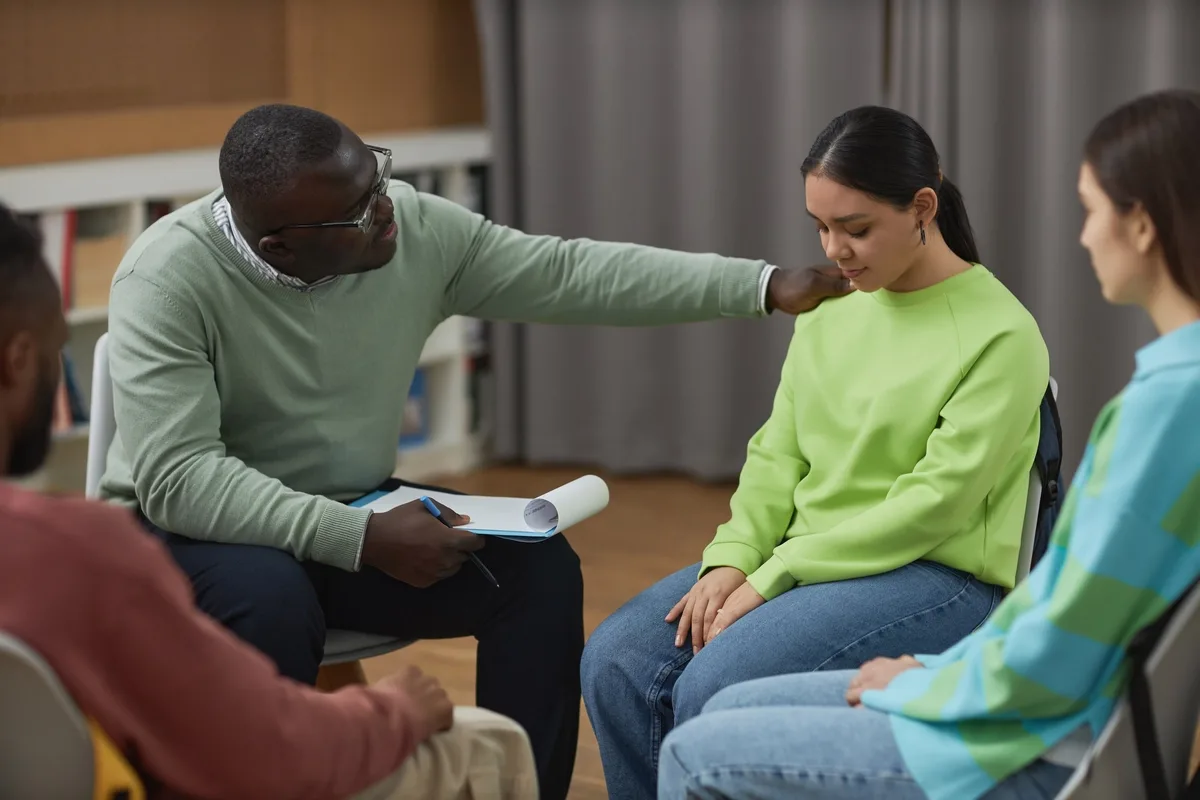24/7 Helpline:
(866) 899-221924/7 Helpline:
(866) 899-2219
Learn more about PTSD Treatment centers in New Brighton
PTSD Treatment in Other Cities

Other Insurance Options

Cigna

Oxford

Regence

Lucent

CareSource

PHCS Network

GEHA

State Farm

Private insurance

American Behavioral

Humana

Access to Recovery (ATR) Voucher

Sutter

Kaiser Permanente

MVP Healthcare

BHS | Behavioral Health Systems

EmblemHealth

WellPoint

Providence

Horizon Healthcare Service




Meridian Behavioral Health
Meridian Behavioral Health offers outpatient and inpatient treatment for individuals with alcohol an...

Gateway Rehab
Gateway Rehab provides alcohol and drug addiction treatment to men and women throughout Pennsylvania...

Pinnacle Treatment Services
Pinnacle Treatment Services is a private rehab located in Aliquippa, Pennsylvania. Pinnacle Treatmen...









































































































































































































































































































Gateway Rehab – Baden
Gateway Rehab - Baden provides flexible and confidential outpatient treatment required by those who ...

5 Steps to Addiction Freedom
5 Steps to Addiction Freedom is a private rehab located in Aliquippa, Pennsylvania. 5 Steps to Addic...

Gateway Rehab – Cece’s Place
Gateway Rehab - Cece's Place provides a supportive home environment where patients who had completed...

Centers for Rehabilitation Services
Centers for Rehabilitation Services is a private rehab located in Aliquippa, Pennsylvania. Centers f...




































































































